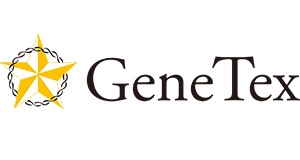PAPP A antibody (MSVA-780M) HistoMAX™
PAPP A antibody (MSVA-780M) HistoMAX™
SKU
GTX04437-S-100
Packaging Unit
100 μl
Manufacturer
GeneTex
Availability:
loading...
Price is loading...
Clone Name: MSVA-780M
Light Chain: Kappa
Product Description: This antibody was validated on 76 different Normal Tissues by IHC-P.
Application Note: IHC-P: 1:75-1:150. *Optimal dilutions/concentrations should be determined by the researcher.Not tested in other applications.
Calculated MW: 181
Positive Control: Placenta: Trophoplast and chorion cells should show a strong cytoplasmic papp-A staining.
Negative Control: Colon: Papp-A immunostaining should be completely absent in both stromal end epithelial cells.
Form: Liquid
Buffer (with preservative): 10mM PBS, 0.05% BSA (Please contact us for sodium azide-free or sodium azide and BSA-free format), 0.05% sodium azide.
Concentration: 0.2 mg/ml (Please refer to the vial label for the specific concentration.)
Background: This gene encodes a secreted metalloproteinase which cleaves insulin-like growth factor binding proteins (IGFBPs). Following IGFBP cleavage, insulin growth factors dissociate from IGFBPs and bind to IGF receptors, resulting in activation of the IGF pathway. The encoded protein plays a role in bone formation, inflammation, wound healing and female fertility. Enhanced expression of this protein is associated with diabetic nephropathy in human patients and this protein may promote tumor invasion and growth in various human cancers. [provided by RefSeq, Aug 2017]
Uniprot ID: Q13219
Antigen Species: Human
Immunogen: Recombinant fragment (within aa 351-523) of human PAPP-A protein
Purification: Protein A/G purified
Conjugation: Unconjugated
Full Name: pappalysin 1
Light Chain: Kappa
Product Description: This antibody was validated on 76 different Normal Tissues by IHC-P.
Go to Normal Tissue GalleryGo to Cancer Tissue Gallery
Application Note: IHC-P: 1:75-1:150. *Optimal dilutions/concentrations should be determined by the researcher.Not tested in other applications.
Calculated MW: 181
Positive Control: Placenta: Trophoplast and chorion cells should show a strong cytoplasmic papp-A staining.
Negative Control: Colon: Papp-A immunostaining should be completely absent in both stromal end epithelial cells.
Form: Liquid
Buffer (with preservative): 10mM PBS, 0.05% BSA (Please contact us for sodium azide-free or sodium azide and BSA-free format), 0.05% sodium azide.
Concentration: 0.2 mg/ml (Please refer to the vial label for the specific concentration.)
Background: This gene encodes a secreted metalloproteinase which cleaves insulin-like growth factor binding proteins (IGFBPs). Following IGFBP cleavage, insulin growth factors dissociate from IGFBPs and bind to IGF receptors, resulting in activation of the IGF pathway. The encoded protein plays a role in bone formation, inflammation, wound healing and female fertility. Enhanced expression of this protein is associated with diabetic nephropathy in human patients and this protein may promote tumor invasion and growth in various human cancers. [provided by RefSeq, Aug 2017]
Uniprot ID: Q13219
Antigen Species: Human
Immunogen: Recombinant fragment (within aa 351-523) of human PAPP-A protein
Purification: Protein A/G purified
Conjugation: Unconjugated
Full Name: pappalysin 1
| SKU | GTX04437-S-100 |
|---|---|
| Manufacturer | GeneTex |
| Manufacturer SKU | GTX04437-S-100 |
| Green Labware | No |
| Package Unit | 100 μl |
| Quantity Unit | STK |
| Reactivity | Human |
| Clonality | Monoclonal |
| Application | Immunohistochemistry (paraffin) |
| Isotype | IgG2b |
| Human Gene ID | 5069 |
| Host | Mouse |
| Product information (PDF) | Download |
| MSDS (PDF) |
|

 Deutsch
Deutsch







